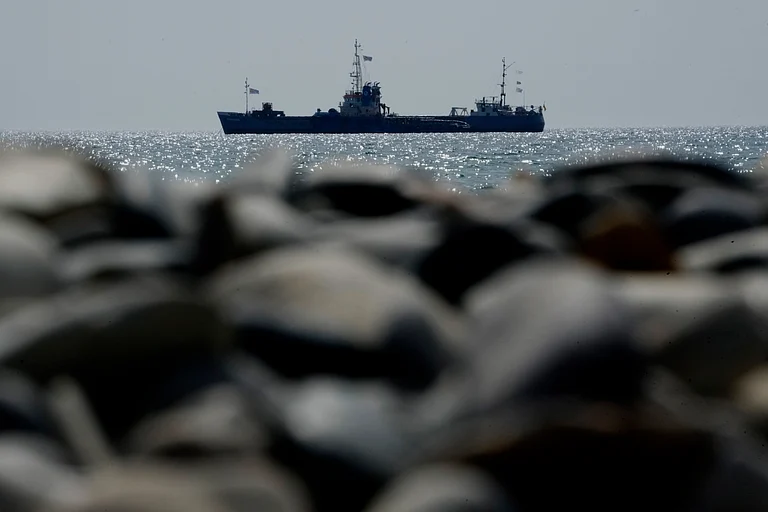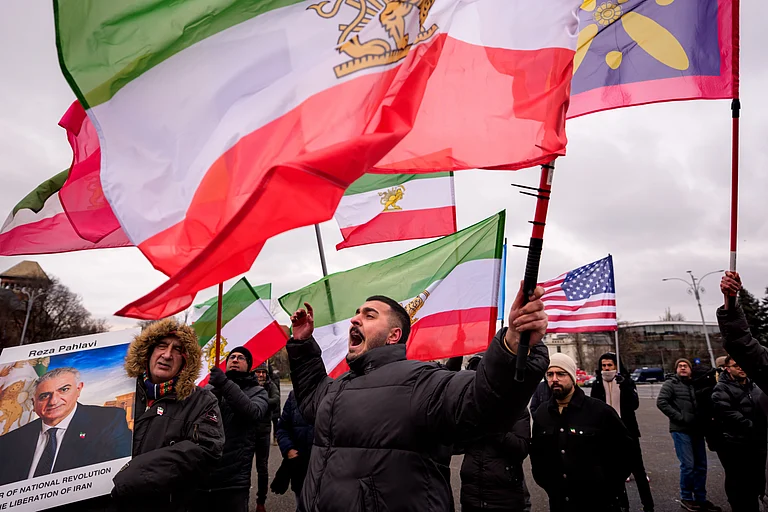As Gaza war rages on, new round of peace talks between Israel and Hamas resumed on Thursday, with mediators hoping to head away from a wider conflict in the middle-east region.
The United States, Qatar and Egypt on Thursday met with an Israeli delegation in Qatar as the death toll of Palestinians in the war rose above 40,000, according to Gaza Health authorities.
Meanwhile, White House National Security spokesperson John Kirby said that Iran could attack Israel in the coming days without any warning as the region continued to be on the edge following the killing of Hamas political chief Ismail Haniyeh in Tehran.
Middle East Tensions | Latest Updates
Israel-Hamas War: Gaza Peace Talks Resume
Fresh round of peace talks between Israel and Hamas began on Thursday as international mediators -- the US, Qatar and Egypt -- met with an Israeli delegation.
The militant outfit, which did not take part directly, accused Israel of making additional demands to a previous proposal that had the support of the US and other international parties and to which Hamas had agreed in principle.
The resumption of peace talks with the hope of achieving ceasefire and release of hostages is also aimed at a potential deal to head away from a wider conflict as the Palestinian death toll rose above 40,000.
White House National Security spokesperson John Kirby said that the talks were an important stop, adding that they could run into Friday as well.
Kirby noted that a lot of work remains given the complexity of the agreement and that negotiators were focusing on its implementation.
Notably, a ceasefire in Gaza could calm down the larger tension in the region. Mediators have been trying to hammer out a plan to get Hamas to release the hostages they captured at the start of the conflict on October 7, 2023.
The three-phase plan which was proposed by US President Joe Biden on May 31, has been agreed to in principle by both the sides. However, Hamas had proposed "amendments" and Israel suggested "clarification", leading each side to accuse the other of making new demands that it cannot accept.
Hamas had rejected Israel's latest demands, which included a lasting military presence along the border with Egypt and a line bisecting Gaza where it would search Palestinians returning to their homes to pick out the militants.
Hamas spokesperson Osama Hamdan had told The Associated Press that they are only interested in discussing Bidens's proposal.
A Palestinian official, closely associated with the negotiations, had earlier said that Hamas would not take part in Thursday's talks, adding that its senior officials were ready to discuss any proposals from mediators.
However, Israeli Prime Minister Benjamin Netanyahu has denied making any new demands, repeatedly questioning whether the ceasefire would last. He has noted that Israel remained committed to "total victory" against Hamas and the release of all the hostages.
Iran Could Strike Israel With 'No Warning'
White House National Security spokesperson John Kirby said on Thursday that Iran has made preparations and could attack Israel soon with little to no warning, adding that its rhetoric should be taken seriously.
Tensions between Iran and Israel have remained on the edge since the killing of the top Hezbollah commander in an Israeli airstrike and that of Hamas' political chief Ismail Haniyeh.
Diplomats have been hoping that a ceasefire in Gaza would help calm down the tensions on the Iran, Hezbollah end as well. Notably, the Iran-backed group has repeatedly said that it would not stop attacking Israel till there is a proper ceasefire in Gaza.
The fear of a wider conflict, that could break out into a full-scale war, has been on the rise since the killing of Haniyeh in Tehran.
Iran's Supreme Leader Ayatollah Khamenei earlier condemned the "enemy psychological warfare" which aimed at forcing Tehran to reconsider its retaliation against Israel.
Citing the Holy Quran, the Supreme Leader had said on Wednesday that any non-tactical military, economic or political retreat will invite "divine wrath".



























